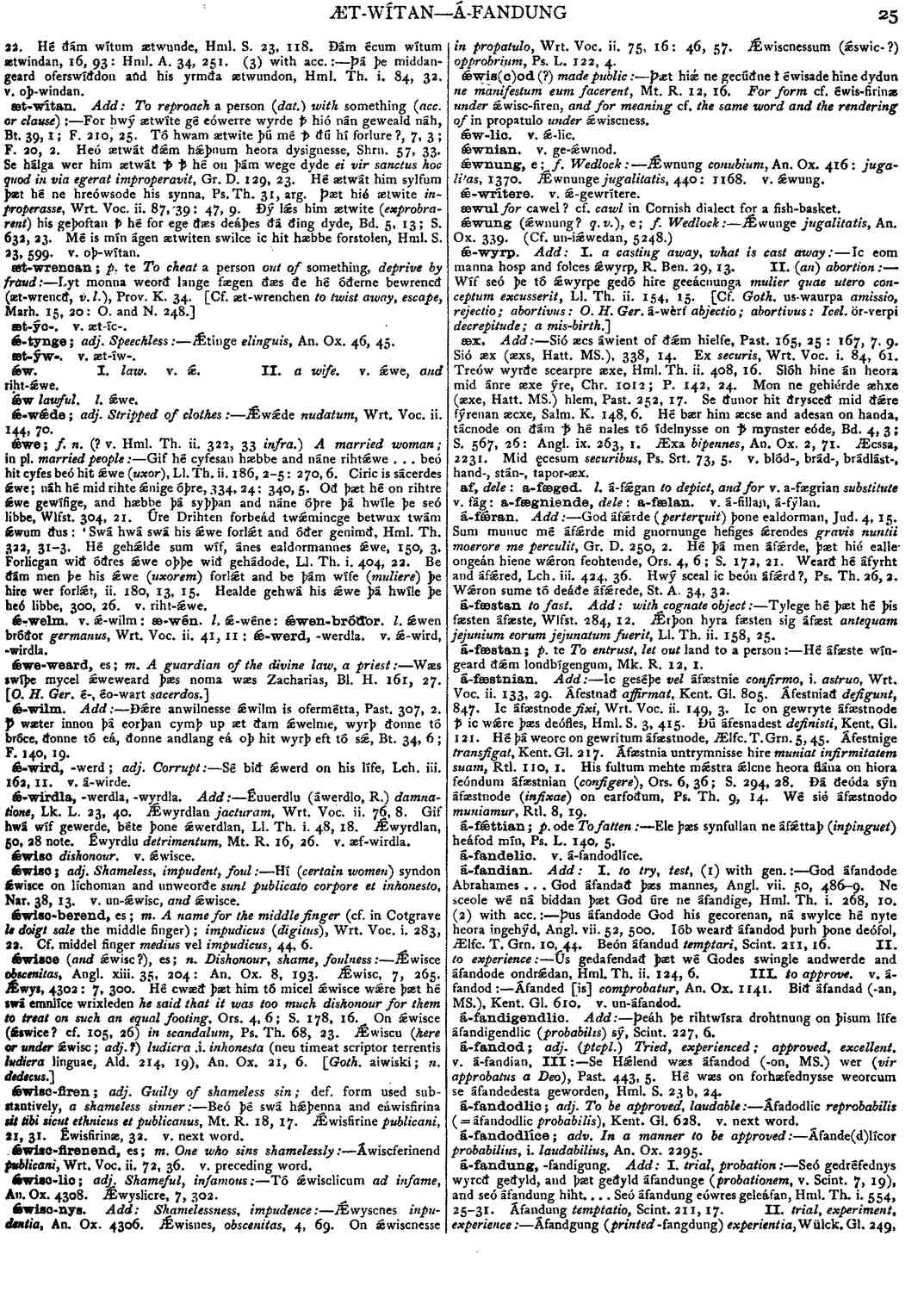ǽwe
- noun [ feminine ]
-
Gif hé cyfesan hæbbe and náne rihtǽwe . . . beó hit cyfes beó hit ǽwe (
uxor
),- Ll. Th. ii. 186, 2-5: 270, 6.
-
Ciric is sácerdes ǽwe; náh hé mid rihte ǽnige óþre,
- 334, 24: 340, 5.
-
Oð þæt hé on rihtre ǽwe gewífige, and hæbbe þá syþþan and náne óþre þá hwíle þe seó libbe,
- Wlfst. 304, 21.
- Úre Drihten forbeád twǽmincge betwux twám ǽwum ðus; ' Swá hwá swá his ǽwe forlǽt and óðer genimð. Hml. Th. 323, 31-3.
-
Hé gehǽlde sum wíf, ánes ealdormannes ǽwe,
- 150, 3.
-
Forlicgan wið óðres ǽwe oþþe wið gehádode,
- Ll. Th. i. 404, 22.
-
Be ðám men þe his ǽwe (
uxorem) forlǽt and be þám wífe (muliere )
þe hire wer forlǽt, ii.- 180, 13, 15.
-
Healde gehwá his ǽwe þá hwíle þe heó libbe,
- 300, 26.
Bosworth, Joseph. “ǽwe.” In An Anglo-Saxon Dictionary Online, edited by Thomas Northcote Toller, Christ Sean, and Ondřej Tichy. Prague: Faculty of Arts, Charles University, 2014. https://bosworthtoller.com/38132.
Checked: 0